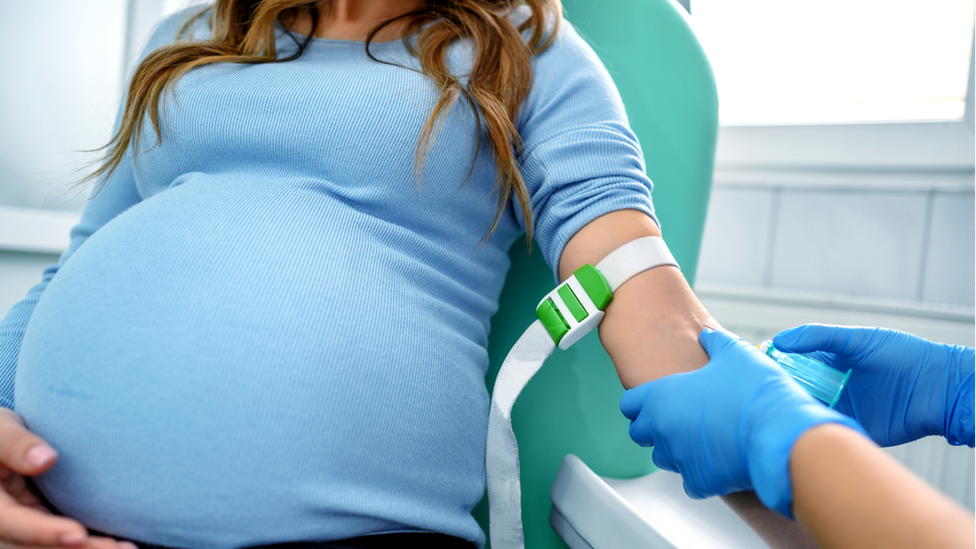Pre-eclampsia: Wisbech mum of premature baby welcomes new guidance
- Published
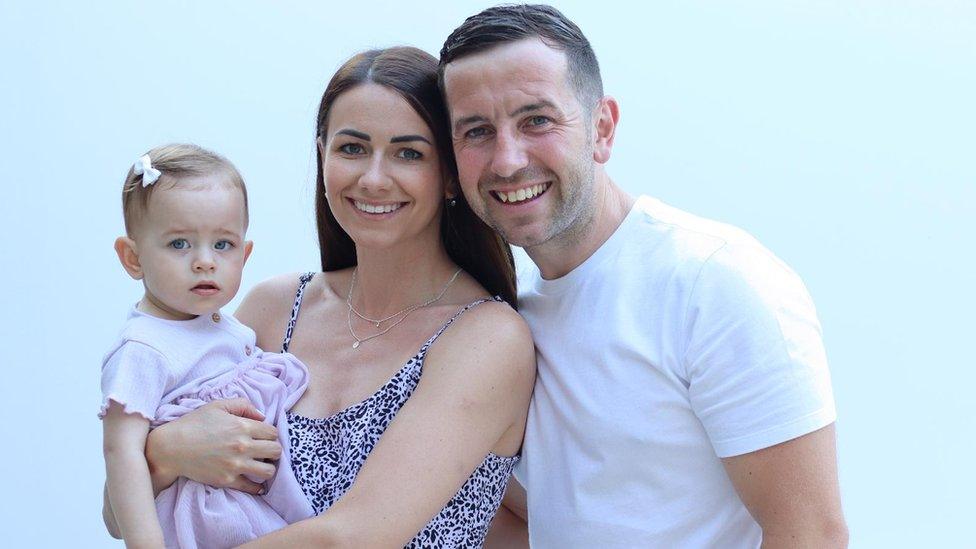
Georgie Withers said she was "petrified" when her daughter Freya had to be delivered "very early" due to pre-eclampsia
A mother who gave birth to her daughter prematurely due to pre-eclampsia has welcomed new guidance about the condition.
Georgie Withers, from Wisbech, Cambridgeshire, was 30 weeks pregnant when her daughter had to be delivered to save both their lives.
Previously, tests were carried out to rule out the condition but are now being recommended to diagnose cases.
Mrs Withers says this will help relieve some "anxieties" for pregnant women.
The potentially fatal condition affects around 6% of women, often during the second half of pregnancy, and can be managed if spotted early.
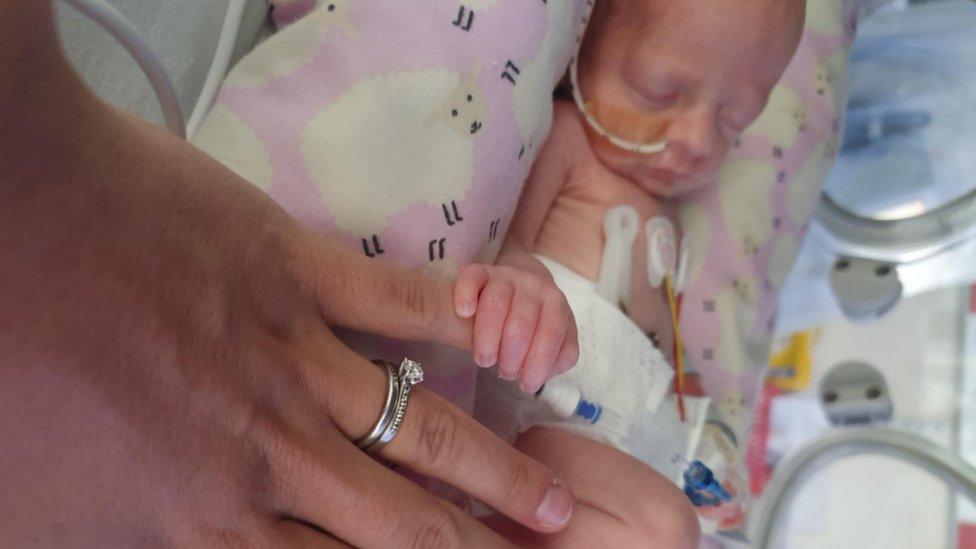
Mrs Withers said she was unable to hold Freya after she was born on 2 July 2020 as she was so premature
The National Institute for Clinical Excellence (NICE) had recommended a test that could only rule out pre-eclampsia, but now recommends more accurate tests that can diagnose cases.
Early signs can include high blood pressure and protein in urine, with symptoms including severe headaches, vision problems, pain just below the ribs, nausea or vomiting, or sudden swelling of the hands, feet or face.
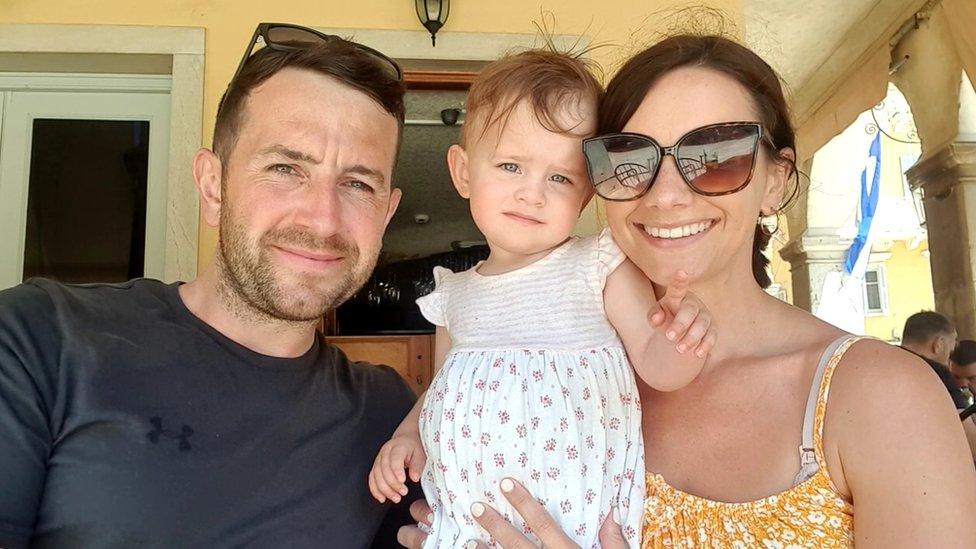
Mrs Withers, pictured with her husband Warren Withers and Freya, said she suffered severe pre-eclampsia despite her pregnancy being deemed low risk
Mrs Withers, 33, said being tested earlier would make her feel "safer" in another pregnancy.
The paramedic, who works across West Norfolk, was moved to a high-dependency unit after she went to hospital in 2020 with concerns about some symptoms she was having.
"Things didn't improve and it was decided that my daughter would have to be delivered to save both our lives," she said.
"We were petrified.
"The fact that the most precious thing to me would be delivered so early and I knew this was going to be a big fight for her."
As baby Freya was so premature, Mrs Withers and her husband, Warren Withers, were unable to hold her after she was born as she was taken straight to the neonatal intensive care unit.
After 37 days, Freya was discharged.
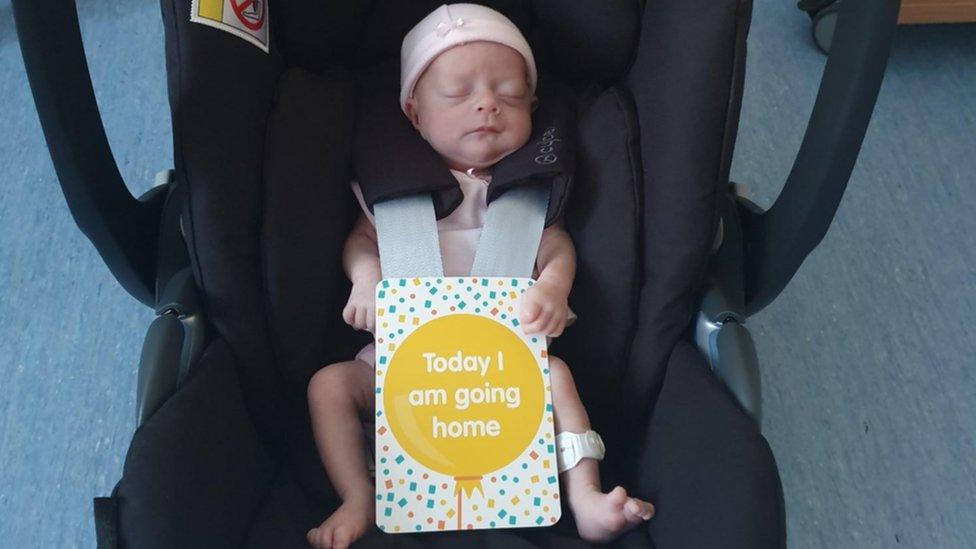
Mrs Withers said being diagnosed and treated earlier would take away the "anxieties" around the condition
Mrs Withers said despite her experience, she and Mr Withers "would love to have another baby".
"The anxieties from suffering from pre-eclampsia are still there," she said.
"I think being able to get tested earlier would take away some of those anxieties.
"It would make me feel like I'm in safer hands, to know that I can get treatment as early as possible."

Find BBC News: East of England on Facebook, external, Instagram, external and Twitter, external. If you have a story suggestion email eastofenglandnews@bbc.co.uk, external
Related topics
- Published27 July 2022
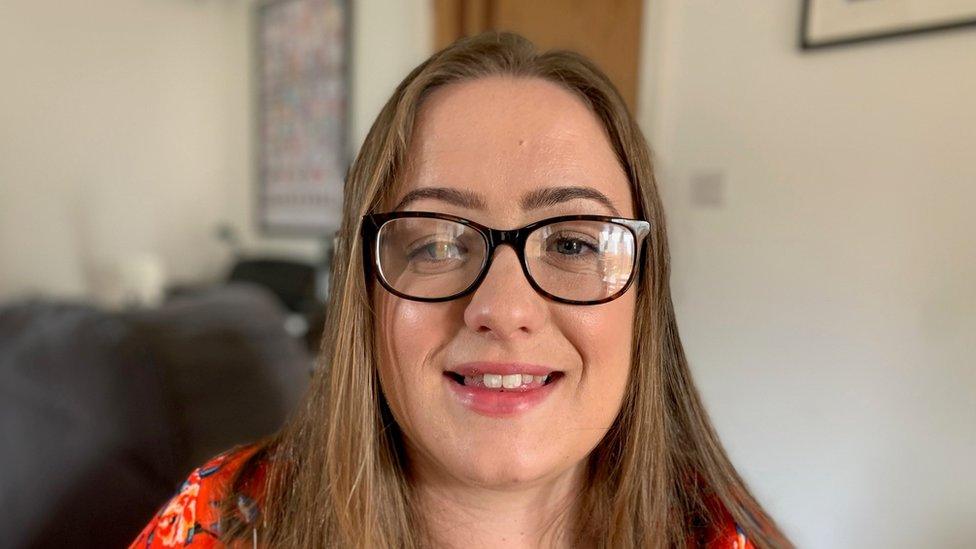
- Published25 March 2022
